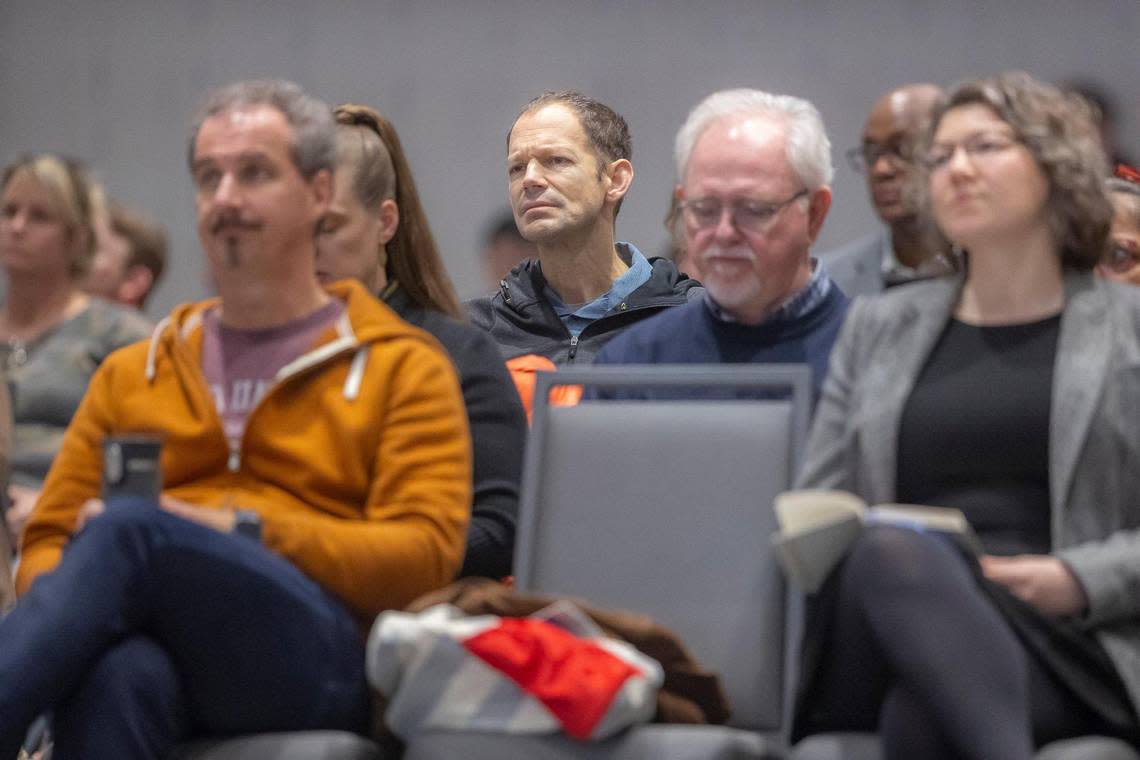‘An existential attack.’ UK administration fires warning shots on faculty power | Opinion

Like many big universities across the country, it feels as though the University of Kentucky has slowly become more corporate, with layers of vice-presidents, consultants, “project inputs” and “qualitative assessments.” Sometimes it seems like a health care conglomerate attached to a pretty good basketball team.
And like many big universities, there’s always been a tension between this corporate advancement and the faculty that have traditionally led academic decision-making on campus.
That tension erupted into open warfare Friday, when the UK Board of Trustees targeted the University Senate, the body of mostly faculty that oversees a lot of academic policy, including admissions standards and curriculum.
As Herald-Leader reporter Monica Kast has detailed, the work came out of a legislative charge last year to look at Kentucky’s higher ed governance and structure. (SJR 98 is part of Senate President Robert Stivers’ plan to create a new four-year university in southeastern Kentucky.)
The administration hired the consulting firm, Deloitte (“People First Solutions), to assess regulations and found that UK’s University Senate was different from peer institutions because it oversees too much policy, has too many rules and moves too slowly. (Has a consulting firm ever told a client something it doesn’t want to hear?)
But DeShana Collett, the president of the Senate Council, the Senate’s executive arm, told Kast she was not interviewed nor asked to provide information to Deloitte.
“I’m taken aback and dismayed at the level of aggressiveness and negativity that was presented in this report, and it honestly feels like a direct attack on academic integrity,” Collett said.
Sure, a 305-page rule book seems pretty long. But make no mistake: This move is about consolidating power with top administrators and lessening the influence of faculty over how UK moves forward.
“This is an existential attack,” said Aaron Cramer, former faculty trustee and Senate Council chair. “It’s changing the fundamental nature of what’s the most inclusive part of the university, including faculty, students and administrative staff.”
Cramer said he was interviewed by Deloitte, but his comments were not reflected in Friday’s report.
UK swears there is nothing negative about the report or what comes after. Board of Trustees Chairman Britt Brockman said the board was still committed to shared governance. This move is “not a threat and should be welcomed as an opportunity to be better.”
Maybe. But to blame the sloth of an enterprise of 34,000 students and a medical center on its faculty is absurd.
As faculty trustee Hollie Swanson — the only person who questioned the report — pointed out in the meeting, the Deloitte presentation was based on interviews around campus.
“As a scientist, I would hope we would follow up with data,” Swanson said. “Do you have data that would imply that we are slower in course approval?”
Swanson was the only trustee to vote against the official motion to propose changing regulations by the next meeting.
Molly Blasing, a Russian studies professor serving on the Senate Council, said she was dismayed by Deloitte’s portrayal of the Senate as full of “disgruntled” faculty.
“It was disheartening, shocking and offensive to hear the work of our Senate characterized in that way,” she said. “Is there room for improvement? Yes.”
But, “I think the faculty’s involvement and authority over programs means that the people working with students every day are doing the work of innovation and workforce readiness.”
Blasing said the faculty is fully committed to UK’s strategic plan to be more innovative in meeting Kentucky’s workforce needs. But she opposes a solution that would make the University Senate merely advisory.
“What I worry about is that shared governance gets reduced to performative listening,” she said.
Faculty at UK still provide some checks and balances to the administration. It’s easy to see why the administration would want them to have less power. The ultimate power, though, rests as it always has with President Eli Capilouto and the Board of Trustees, which rarely questions his actions. (In December, the board did ask Capilouto to improve his relationship with faculty, which will be ... difficult now.)
UK long ago abandoned its quest for Top 20 status and turned its attention to better supporting the state of Kentucky and its many complex needs. That’s the proper role for a flagship school in a state as poor and sick as ours is.
But in the end, UK is still a university, not a widget factory. It’s charge is educating students, and the faculty still knows the most about that. So make a shorter rule book, but don’t dilute the power of those closest to students and classrooms.
“This is a structure that’s good for students and the university,” Cramer said.
“That’s why we do it.”

